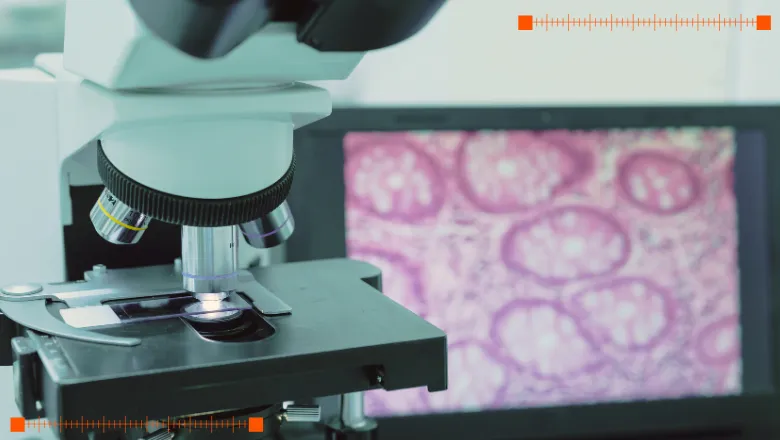
Dr Hector Zenil
Senior Lecturer / Associate Professor
Biography
Dr. Zenil co-leads the Algorithmic Dynamics Lab, a joint lab between Karolinska Institute and KCL.
His research lies at the intersection of information theory, complexity science, causal AI and biomedical engineering to understand living systems and their transition from health to disease.
He introduced the field of Algorithmic Information Dynamics, a symbolic regression and program synthesis framework based on optimal inference theory that combines classical and algorithmic information theories with causal inference and perturbation analysis to tackle inverse problems.
Before joining KCL, Dr. Zenil was at the Machine Learning Group, Department of Chemical Engineering and Biotechnology (CEB) at the University Cambridge, and before at the Structural Biology Group, Department of Computer Science, University of Oxford as a faculty member, senior researcher and John Templeton Principal Investigator. He was at the Alan Turing Institute as one of only ten appointed independent AI scientific advisors.
Before that, Dr. Zenil was an Assistant Professor and Lab leader at the Algorithmic Dynamics Lab, Unit of Computational Medicine, Center for Molecular Medicine and SciLifeLab at the Karolinska Institute in Stockholm, Sweden where he was the recipient of the prestigious VR Young Researcher Award.
He holds two PhDs, one in Computer Science and one in Logic and Epistemology from Paris 1 Sorbonne/Ecole National Superiore, and Lille 1 in France. His first postdoctoral position in the UK was at the Behavioural and Evolutionary Theory Lab at the University of Sheffield and has been an invited scholar and invited professor at the MIT, Carnegie Mellon, the National University of Singapore (NUS) and KAUST.
His research interests include bio- and techno-signatures, the dynamics of health and disease, complexity sciences and applications of (algorithmic) information theory to fundamental science, in particular to optimal inference and Artificial Super Intelligence.
Dr. Zenil is also affiliated to the King's Institute for Artificial Intelligence, an Associate Researcher at the Cancer group at the Francis Crick Institute and a Trustee of the board of the British Society for Research on Ageing, the oldest scientific society devoted to research into the biology of ageing and longevity.
He is also Academic Entrepreneur in Residence at the London Institute for Healthcare Engineering (LIHE) and the Editor-in-Chief of the Complex Systems journal, the first journal in the field founded by Stephen Wolfram in 1987.
News
The age of AI Sci: how GenAI and LLMs are reshaping the foundations of science
A newly-published paper explores the influence of GenAI on how scientists practice science today and what it means for the scientific method and scientific...

AI Helps Discover Surprising Drug Combos for Breast Cancer Treatment
Artificial intelligence joins scientists in the lab in a groundbreaking team-up to find new cancer therapies using existing drugs.

New study introduces a test for artificial superintelligence
Researchers propose a new benchmark that uses advanced compression and a specialised type of probability to find the most likely explanations for Artificial...

King's researchers refute the validity of “Assembly Theory of Everything” hypothesis
Researchers led by Dr Hector Zenil have presented findings that disprove the claims of Assembly Theory.
Events

How Artificial Super Intelligence Will Solve Human Disease
Join this event to learn how Artificial Super Intelligence could redefine healthcare.
Please note: this event has passed.
News
The age of AI Sci: how GenAI and LLMs are reshaping the foundations of science
A newly-published paper explores the influence of GenAI on how scientists practice science today and what it means for the scientific method and scientific...

AI Helps Discover Surprising Drug Combos for Breast Cancer Treatment
Artificial intelligence joins scientists in the lab in a groundbreaking team-up to find new cancer therapies using existing drugs.

New study introduces a test for artificial superintelligence
Researchers propose a new benchmark that uses advanced compression and a specialised type of probability to find the most likely explanations for Artificial...

King's researchers refute the validity of “Assembly Theory of Everything” hypothesis
Researchers led by Dr Hector Zenil have presented findings that disprove the claims of Assembly Theory.
Events

How Artificial Super Intelligence Will Solve Human Disease
Join this event to learn how Artificial Super Intelligence could redefine healthcare.
Please note: this event has passed.
